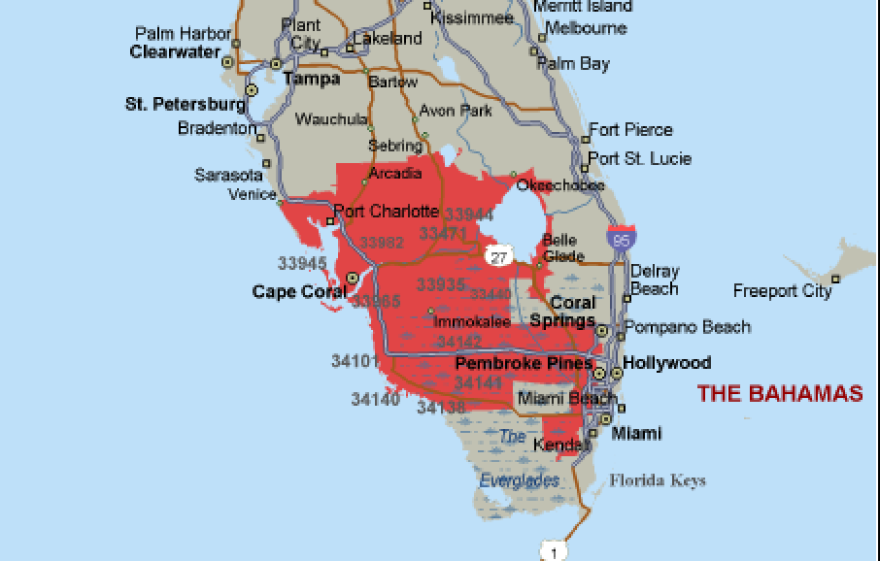University of West Florida researcher Dr. Raid Amin is getting more scientific support for his work in identifying pediatric cancer clusters in Florida. A newly published article chronicles recent findings that show higher-than-expected childhood cancers in the Miami area. The article appeared in the on-line journal “Statistics and Public Policy,” which is a project of the American Statistical Association.
Dr. Amin is a Distinguished University Professor in the Department of Mathematics and Statistics at UWF. It was in 2009 that he and a team of graduate students began their research project using data from the Florida Association of Pediatric Tumor programs (or FAPTP). The research covered data from 2000-2007.
“We identified significant cancer clusters on brain tumors, on leukemia, lymphomas and in general all pediatric cancer types combined,” said Dr. Amin.
The clusters were located in south Florida, primarily in Miami-Dade, Broward, and Palm Beach counties. It was in the lush community known as The Acreage in Palm Beach County that state health officials confirmed a brain cancer cluster, involving 13 children, and as a result launched a series of environmental testing there.
Dr. Amin recently updated his research by reviewing state cancer data covering an 11 year period from 2000-2010.

“I first looked at what’s called spatial clusters, meaning spatially on the map, just geographically, when you average cancer counts across the eleven years,” Amin said, acknowledging that his research did not address potential causes. “On top of that we also looked at spatial temporal or space time interaction.”
Amin’s report released last year identified two pediatric cancer clusters –in the Miami metro area and an area nearby west of the Everglades around the southern portion of Lake Okeechobee.
After a conference presentation at UWF, keynote speaker Dr. David Banks from Duke University, who happened to be on the board of the American Statistical Association, approached Amin about validating his study by extending it to include other researchers.
“Four research teams then, independent from me, analyzed the same data with their own methodologies. They included the theory, the computations, and these are real scholars on disease surveillance and cluster analysis,” Amin said. “So, that way we had, in the end, five research articles total. All appeared in the new ASA on-line journal called “Statistics and Public Policy.”
A sixth article reviewing all of the research was published on April 17, 2015. It was written by Dr. Lance Waller, a biostatistics professor specializing in spatial epidemiology at Emory University in Atlanta.
“Comparing the five articles it seems Dr. Lance Waller has concluded, based on his experience with these five different methodologies being used, that common grounds really are in Miami. What I found of course, also in Miami,” said Amin.
Amin says having a recognized authority such as Waller weighing in provides a greater level of validation and exposure for their research. Also, in the article, he recommended what he termed ‘responsibly responsive’ next steps by local and state health officials.
According to Amin, it’s the right approach. “Using very cautious words and asking very nicely and politely and for the health departments to please take a look to benefit from this input,” he said. “ I think it’s a beautiful way for scientists to work together to help, hopefully identify or refute, why pediatric cancer rates appear to be higher than expected in certain areas in Florida.”
For his part, Dr. Amin says his ultimate hope is for creation of a national cancer database, which he believes would provide a better picture of whether of whether cancer rates are high in a particular neighborhood.
“Because, what may appear to be high in your neighborhood, maybe when you compare it to the whole county, is not so high. Or, what you may see in your neighborhood as average may be quite serious.”
Dr. Amin will discuss his cancer research with colleagues at an upcoming meeting of the American Statistical Association. The ASA meeting, to be held in Seattle in August, will feature a special session specifically titled “Pediatric Cancer Clusters in Florida.”



